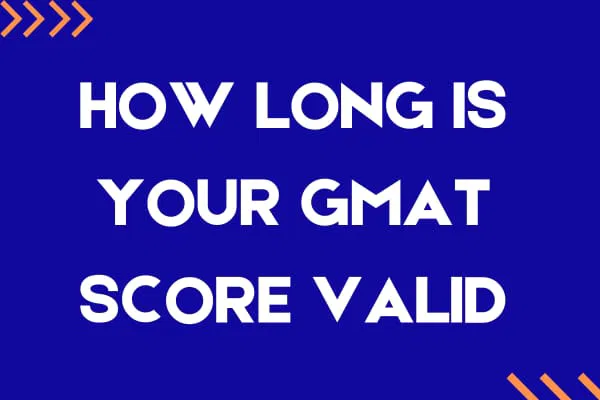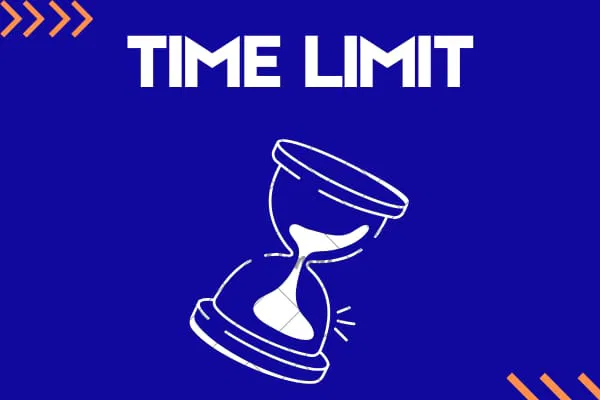
For aspiring business school students, understanding GMAT score validity is crucial for planning their application timeline. Let’s dive into everything you need to know about how long your GMAT score remains valid and what this means for your MBA journey.
Official GMAT Score Validity Period
The official validity period for GMAT scores (including the new Focus Edition) is 5 years from the date you take the exam. This means if you took your GMAT on January 15, 2024, your scores would remain valid until January 15, 2029.
Why Is There a Time Limit?

Several factors contribute to the five-year validity period:
- Skills Currency: Business schools want to ensure that your quantitative and analytical skills are current when you begin your program.
- Professional Growth: The five-year window typically aligns with meaningful professional development, allowing schools to evaluate your career progression alongside your test scores.
- Test Evolution: As the GMAT exam evolves (like the recent introduction of the Focus Edition), schools prefer more recent scores that reflect current testing standards.
Important Considerations About Score Validity

For Business School Applicants
- Application Planning
- Your scores must be valid when you submit your application
- They should remain valid through the admission decision period
- Consider potential deferrals or multiple application rounds
- School-Specific Policies
- Some schools may have stricter validity requirements
- Top programs might prefer more recent scores
- Check each school’s specific requirements
- Multiple Test Attempts
- If you have multiple valid GMAT scores, schools typically consider your highest score
- Some schools look at all attempts within the validity period
- The validity period applies to each attempt separately
For Working Professionals
- Career Development
- Some employers use GMAT scores for recruitment
- Corporate development programs might require valid scores
- Consider professional opportunities when timing your GMAT
- Future Planning
- If you’re planning to work before MBA, factor in the validity period
- Consider potential career shifts that might require valid scores
- Allow buffer time for reapplication if needed
Special Circumstances and Considerations
Program-Specific Requirements
- Executive MBA Programs
- May be more flexible with score validity
- Might waive GMAT requirements based on experience
- Could accept older scores case-by-case
- Part-Time MBA Programs
- Often align with traditional validity periods
- May consider work experience more heavily
- Might offer GMAT waivers for experienced professionals
International Applicants
- Additional Planning Needed
- Factor in time for visa processing
- Consider potential delays in application processing
- Allow time for document verification
- Regional Variations
- Some countries might have different validity requirements
- International programs might have specific policies
- Check regional accreditation standards
Tips for Managing GMAT Score Validity

- Strategic Timing
- Take the GMAT when you’re best prepared
- Consider your application timeline
- Factor in potential retakes
- Allow buffer time for unexpected delays
- Documentation
- Keep your official score reports accessible
- Maintain digital and physical copies
- Track validity expiration dates
- Save all test-related communications
- Application Planning
- Research school-specific requirements early
- Create a timeline working backward from application deadlines
- Consider potential deferral scenarios
- Plan for multiple application rounds if needed
What Happens When Scores Expire?
- Expired Scores
- Cannot be used for applications
- Cannot be extended or renewed
- Must retake the exam for valid scores
- Previous scores remain on record but marked as expired
- Retaking Options
- Consider changes in test format
- Review updated study materials
- Factor in preparation time
- Plan for registration and testing availability
Conclusion
Understanding GMAT score validity is crucial for effective application planning. The five-year validity period provides a reasonable window for most applicants while ensuring that business schools receive current indicators of candidates’ abilities. Key takeaways:
- Keep track of your score validity period
- Research school-specific requirements
- Plan your application timeline accordingly
- Consider professional needs beyond school applications
- Maintain proper documentation
Remember that while the five-year validity period is standard and answers our question of How Long the GMAT Score is valid. Your specific situation and target programs might require additional planning. Stay informed about any changes in score validity policies, especially with the recent introduction of the GMAT Focus Edition in 2024, and plan your testing and application strategy accordingly.
- Improve GMAT score from 500 to 700
- How to Score 700+ on GMAT Focus
- Practice GMAT at Home
